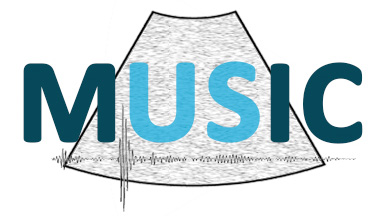Research
AI Cardiac
AI-driven handheld Ultrasound for cardiac function assessment
If a person is being diagnosed with heart failure and experiencing worsening fatigue and shortness of breath, regular monitoring of the heart’s left ventricular ejection fraction (LVEF) is essential for timely treatment adjustments. LVEF measurement is key to classifying heart failure, whether it is with reduced, preserved, or mildly reduced ejection fraction. Tailored treatment strategies, as well as some medications, are only effective for patients with reduced ejection fraction. Yet, long waiting lists for a specialist-performed ultrasound examination delays care.
A potential solution would be having an ultrasound by your general practitioner (GP) using a smartphone with an point-of-care ultrasound app. However, currently this requires an extensive training for the GP’s and a huge investment to use an ultrasound machine.
In AI-HEART-CARE we will develop an AI-driven smartphone-based app that in combination with a revolutionary handheld echo transducer will address both issues. Since echocardiographic imaging is complicated by finding the correct window and subsequently maneuvering the probe to the right tilt and rock to get the optimal plane, we will use a dedicated handheld cardiac probe capable of adjusting the tilt and rock electronically to facilitate imaging the correct plane without user intervention. This probe will be produced by Philips/Praesens and will provide the best possible image acquisition, subsequently followed by real-time analysis, and thus minimizing the need for specialist localization of the ultrasound probe. In addition, AI-algorithms will be developed to automatically analyze the acquired ultrasound data to provide the Left Ventricular Ejection Fraction (LVEF), making accurate heart assessments accessible even to non-experts. Their lower cost and portability support widespread adoption in general practice and will be facilitated by the Department of Family Medicine Maastricht University. Improving diagnostic capabilities in general practice has broad societal benefits: it reduces specialist referrals, prevents hospitalizations through timely treatment, and alleviates healthcare system burdens.
Funding
This research project is funded by the TKI LSH Programme of Health~Holland and powered by TrinitasDx
